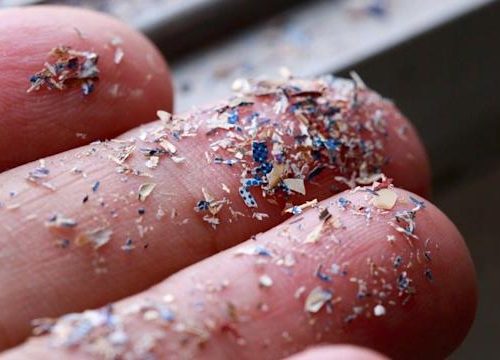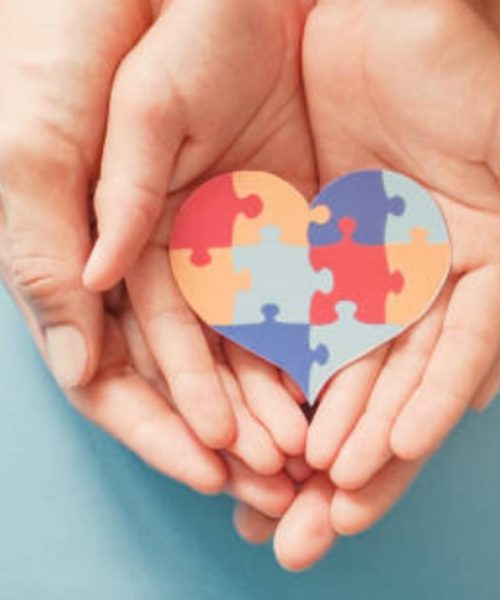BY KAREEM ABDUL-JABBAR | HollywoodReporter.Com
Troy Warren for CNT
Instead of demanding perfection from sports stars who get candid about their health, viewers should admire their perseverance — and take cues from their coping skills.
When four-time Grand Slam champion Naomi Osaka dropped out of the French Open and Wimbledon because of anxiety and depression associated with compulsory press interviews, many fans were shocked at her bold confession. While most professional athletes rallied to support her “bravery,” some critics dismissed the player, who will represent Japan at the Tokyo Olympics, as a “diva” and “narcissistic.” The same thing happened in 2018 when NBA star Kevin Love wrote an essay in The Players’ Tribune about his anxiety and depression despite his fear that others, especially his teammates, would see it as a “form of weakness that could derail my success in sports.”
Within the past few years, dozens of celebrities and athletes — among them Adele, Britney Spears, Demi Lovato, Beyoncé, Miley Cyrus, Emma Stone, DeMar DeRozan, Michael Phelps and Dwayne Johnson — have openly discussed their struggles with mental health. Richard Sherman, arrested July 14 after his family called 911 during a domestic incident where he threatened to harm himself, promised to get “the help I need” in an Instagram post.
Yet the stigma of somehow being damaged, tainted, a diva or unable to perform lingers because the public perception is that, unlike with a sprained ankle, people can’t heal from or cope with mental health issues. They forget that these people have been dealing with these challenges at the same time they’ve risen to elite athlete or star celebrity status. Rather than cautionary examples of weakness, they are often models of strength and perseverance.
Professional sports is basically a high-octane reality show. The Real Housewives/Bachelor/Big Brother-type reality shows derive entertainment by exploiting the neediness and neuroses of their cast so the audience can revel in and be judgmental about the human frailties we all share. However, the source of entertainment in sports is in exalting the athletes who perform at a higher level than the average person. They achieve this through self-discipline and sheer willpower, two of the most revered qualities of a human being. They are ideals of what the human body is capable of and they inspire many of us to try harder to be a better version of ourselves.
So, while we have low expectations of most reality castmembers, who are encouraged to be melodramatic and behave badly so that we can expect their failures, we hold athletes to a higher standard with no patience for faltering. They are expected to walk it off. Rub dirt in it. To always arise phoenix-like regardless of the adversity. Which is why so many athletes who suffer from mental health issues have had to hide their personal struggles from the public lest they are derided by fans and devalued by sponsors.
One reason for this misperception is that some athletes and artists burdened with chronic mental health problems seek to self-medicate through drugs and/or alcohol. This is a classic misdirection: We shame their bad choices, never aware of the real cause. Studies indicate that at least half of those with a mental illness will experience a substance abuse disorder. Part of the reason for this connection is the reluctance to seek help because of the stigma attached. For those in the public spotlight, the stigma can be much worse. They fear losing the success they have worked so hard and long to obtain.
Unfortunately, self-medication often leads to DUIs, drug arrests and bizarre, even violent, public behavior that can have even greater consequences. The recent fall from public grace of Armie Hammer — the allegations of abuse (the actor has denied the claims), the loss of several high-profile projects, his checking into an inpatient facility for alcohol, drug and sex issues — are part of a pattern in Hollywood. Add to that, Britney Spears’ legal battle to end the 13-year conservatorship forced on her after her 2008 mental health problems, and it’s easy to see the reluctance of celebrities to admit, even to themselves, that they have a problem.
Despite careers as public performers, many athletes and performing artists are by nature introverts. Performing can create debilitating stage fright, as attested by famous sufferers like Barbra Streisand, Ozzy Osbourne, Luciano Pavarotti, Katy Perry, Rihanna and Rod Stewart. Adele admitted she vomits before her shows. Eddie Van Halen turned to alcohol to dim his stage fright. Harold Owens, senior director of MusiCares, the Recording Academy’s health and human services organization, commented, “I’ve heard [performers] say repeatedly, ‘I’ve never played sober.’ It’s a huge issue.”
Professional athletes are bound by contract to speak to the press after games or matches. For introverts, this can be much worse than the actual competition. Reporters often look to elicit a dramatic, headline-grabbing quote by provoking the athlete, goading them about losing or about their public stances for social justice. When I was an active player, the repetition of these kinds of antagonistic “gotcha” questions game after game, year after year, was frustrating and sometimes infuriating. For all of us, it takes a toll. Fortunately, soon after Love’s public revelation, the NBA hired William Parham to be the league’s first director of mental health and wellness and create a comprehensive mental health policy.
The problem is the desire for the public to hold up performing artists and athletes as paragons of perfection and then punish them when they are anything less. They see mental health issues as a character issue — to suffer is to be weak. This despite the statistics: one in four adults and one in five teens experiences a diagnosable mental disorder. Rather, the public should admire public figures’ perseverance and character strength for all they’ve accomplished despite their challenges — and learn coping skills from them. Actually, it’s a reflection of our own character whether we choose to be supportive or derisive, because that reflects either our capacity for compassion — or the depth of our own personal fears.
Kareem Abdul-Jabbar, an NBA Hall of Famer and the league’s all-time leading scorer, is a recipient of the Presidential Medal of Freedom and a columnist for The Hollywood Reporter.



































